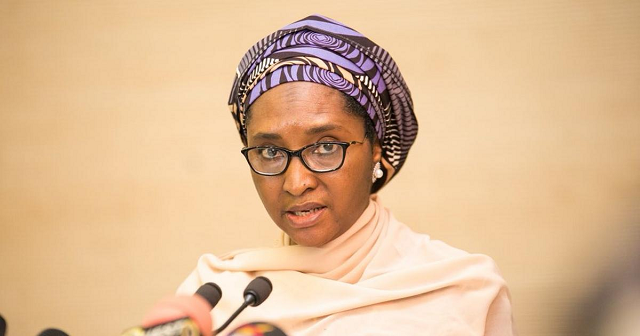The Minister of Finance, Budget and National Planning, Zainab Ahmed, has stated that Nigeria requires important financial sector reforms for steady growth and penetration of Islamic finance in delivering overall economic growth.
Ahmed made this statement on Tuesday at the 5th African International Conference on Islamic Finance titled, “Infrastructure financing, sustainability and the future of African market 2.0” in Abuja.
She noted that regardless of the huge potentials of Islamic financing to move a more competitive economy, the country’s finance sector is falling behind in embracing Islamic financing in its financial market.
She stated that Islamic financial instruments such as Sukuk have been contributory in narrowing the infrastructure gap in the country by aiding investments in critical economic sectors such as healthcare, education and transportation.
READ ALSO: Buhari Writes Senate To Confirm Ayo Omotayo as NIPSS DG
“The asset-backed nature and risk-sharing components of Islamic finance structures help improve financial sector stability and make them appropriate for infrastructure public-private partnerships,” Ahmed said.
She stated further that consultation with stakeholders in reaching efficiency in the Islamic finance networks is necessary for improving its global economy, noting that the perception that Islamic finance is solely for Muslims is a major drawback to its development.
“Consequently, stakeholder engagement becomes imperative to enhance the soundness and efficiency in our financial system on Islamic finance, if we are to build a globally competitive economy,” she added.
14th emir of Kano, Muhammad Sanusi II, in his keynote speech, stressed that the predisposition of Islamic financing to offer thorough accountability makes it a more sustainable blueprint to achieve sectorial development.
“When the government issues bonds in the capital markets investors are just looking forward to getting their interests and capital, and it is easy to track the money and where it goes. But with Sukuk, it is possible to know exactly what the money will be used for,” he said.
“Overall, Islamic finance provides a potent alternative for resource mobilisation and fair and equitable allocation of resources that could help address the sustainable development goals.
“However, an essential condition for the development of Islamic finance markets is the presence of an effective legal and regulatory framework to provide an enabling environment that will create a level playing field, and enforce the legality of Islamic finance contracts and ensure Sharī’ah compliance.”













